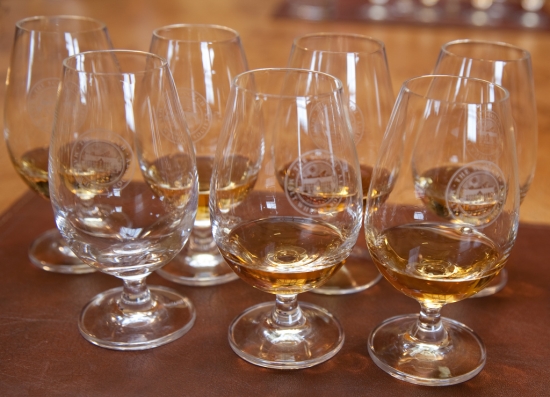The week between Christmas and New Year is traditionally one of merriment and relaxation with loved ones, with a heavy emphasis on celebrating the previous year before toasting the one just arriving. However, whisky firm Whyte and Mackay is likely to be celebrating more than most this Christmas, thanks to a staggering annual profit jump.

Annual turnover in the year to 31st March 2012 jumped by an astonishing 35.6 per cent to £229.8 million, while pre-tax profits climbed 24 per cent to £15.4 million. This is a huge improvement upon last year’s totals, when profits fell by 60 per cent thanks to a shift in business focus.
Previously, Whyte and Mackay mass produced lower quality whisky which could be added into the blends of other companies, or alternatively could be used as base ingredients in food products. Many UK supermarkets chose to purchase such products in order to make the production process less costly.
However, thanks to a rising popularity of the iconic Scottish beverage, executives at the firm took the decision to shift focus slightly – concentrating on the ageing of its own label products. This means that, rather than selling off a base product, the company receives a higher profit from each sale.
This spike in popularity for the company may cause something of a stir in the drinks industry, as Diageo is currently in the process of purchasing a controlling stake in United Spirits, of which Whyte and Mackay is a subsidiary.
Diageo is expected to pay around £1.28 billion for the majority stake, yet may end up having to sell Whyte and Mackay due to competition issues. As Scotland’s largest distiller, the firm already owns brands such as Johnnie Walker, Bell’s and Caol Ila – yet problems are expected to arise should the acquisition of Whyte and Mackay lead Diageo to controlling the supply of 25 per cent of the UK market.
At that point, the Office of Fair Trading would refer the deal to the Competition Commission to determine whether or not a purchase could take place. Diageo would be forced to sell either some of its own brands or those operated by Whyte and Mackay.
Industry experts have speculated that, should this be the case, both Campari and Bacardi could show an interest in adding to their lists of brands.
Campari already owns the Glen Grant distillery, as well as a number of popular quality spirits such as Skyy Vodka. Bacardi, meanwhile, controls 6 per cent of malt production in the UK thanks to its 1997 acquisition of John Dewar & Sons. As part of the sale, it also took over distilleries in Aberfeldy, Macduff and Craigellachie.
No comments as yet have been forthcoming from Whyte and Mackay however the results this week could prove to be a turning point for a firm which has struggled to remain afloat during the recession. Hopefully, owners and employees of the company will be ushering in a similarly successful New Year in just less than two weeks’ time – with a “wee dram” in hand, of course!
Do you think Diageo should be able to move forward in its bid for United Spirits given that it already has quite a high stake in the UK liquor industry, or should the OFT be working with small businesses to help them gain independence and diversify the industry somewhat? Will next year be more successful than this for Whyte and Mackay in your opinion, or will growing economic pressures and budget squeezes mean that households will need to cut back on luxuries such as malt whiskies and spirits?
Previous Post
Tube Strike to Cause Chaos for Shoppers on Boxing Day